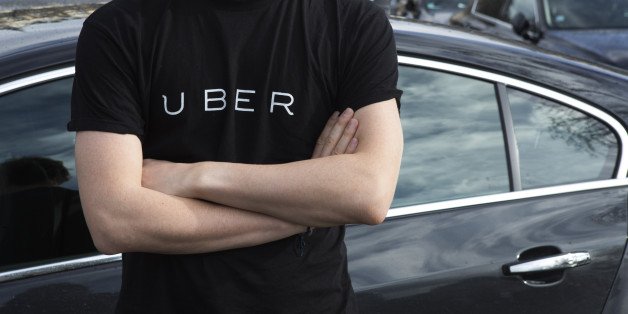Uber Overtakes Rental Cars Among Business Travelers

Transactions from the ride-hailing startup have surpassed rental cars among American professionals, according to Certify, the second-largest provider of travel and expense management software in North America.
Uber accounted for 43 percent of ground transportation transactions expensed through Certify last quarter, while rental cars had 40 percent. Ride-hailing services, with Uber at the forefront, overtook rental cars for the first time in the fourth quarter of 2015 and have since widened their lead, according to a study by Certify published on Thursday.
While an Uber or Lyft Inc. fare costs much less than the average rental car booking, the data show the changing preferences among business travelers. Rental car transactions have fallen 15 percentage points in two years. The decline isn't quite as steep as the one experienced by taxis, which fell 23 percentage points over the same period. Taxis accounted for 14 percent of ground transportation transactions in the first quarter of 2016.
"It really comes down to convenience," said Robert Neveu, president of Certify. "The ability to hail and pay efficiently—that convenience factor is huge, and we’re seeing it change the habits and behaviors of our users."
Many travelers, who previously would have rented a car for convenience even when they didn't expect to drive much, are choosing Uber for those shorter trips, said Hamzah Mazari, an analyst at Sterne Agee. Investors are concerned, he said. Shares in Avis Budget Group Inc. and Hertz Global Holdings Inc. are each down at least 36 percent this year. "Uber definitely has an impact on the car-rental industry," Mazari said.
Rental car companies have been looking for ways to go beyond daily rentals to travelers. After Avis acquired Zipcar in 2013, Enterprise Holdings Inc. introduced its Carshare program, offering customers hourly rentals, a service it had operated under a different brand previously. Hertz said this month that it led an investment round in Luxe Valet Inc., a San Francisco startup that provides on-demand parking services via a mobile app.
Some automakers, which have traditionally viewed rental cars as a way to expose their vehicles to prospective customers, are getting into the ride-hailing game. General Motors Co. said in January it would invest $500 million in Lyft, the second-biggest U.S. car-booking company. As part of their partnership, GM and Lyft are developing short-term car-rental hubs in some U.S. cities. Mercedes-Benz parent company Daimler AG bought Mytaxi, an Uber rival in Europe, in 2014.
Related News


